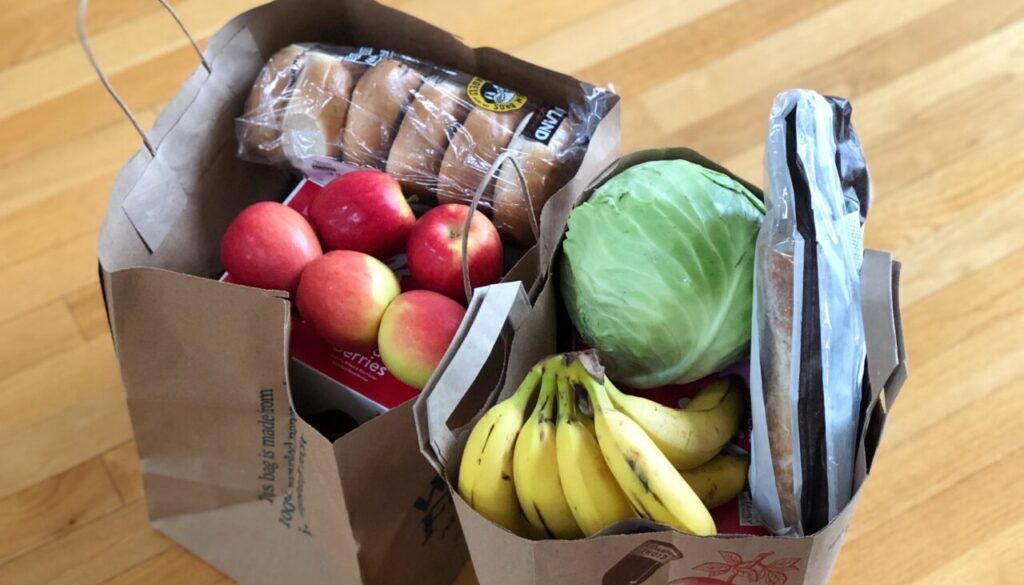Lifestyle: Save Money on your Food Shop
With bills ever-growing, and winter just around the corner, many people are now looking for ways and ideas to save money on their weekly food bill.
Here are some tips and strategies to help you make the most of your food budget:
- Meal Planning: Plan your meals for the week before you go grocery shopping. This prevents impulse purchases and ensures you only buy what you need. It is all too easy to just pop those offers into the trolley as you go past, but these very quickly add up. They also tend to be on high sugar snacks. If you stick to your list, you will find you won’t waste money. Your waistline will thank you, too!
- Budgeting: Set a weekly or monthly food budget and stick to it. This will help you avoid overspending.
- Buy in Bulk: Purchase non-perishable items like rice, pasta, canned goods, and frozen vegetables in bulk. They often come at a lower cost per unit.
- Cook in Batches: Make large batches of meals and freeze them in portion-sized containers. This reduces food waste and provides you with quick, homemade meals when you’re short on time.
- Use Cheaper Cuts of Meat: Cheaper cuts of meat, such as chicken thighs or pork shoulder, can be just as delicious when prepared properly. Slow cooking or marinating can make them tender and flavourful. There is nothing more comforting than a warm casserole as the winter nights draw in.
- Shop for Seasonal Produce: Buying fruits and vegetables that are in season is usually cheaper and fresher. You can also consider shopping at local farmers’ markets for better deals on fresh produce.
- Reduce Meat Consumption: Consider having meatless meals a few times a week. Beans, lentils, tofu, and eggs are affordable sources of protein, and good for you, too.
- Compare Prices: Pay attention to unit prices at the supermarket to determine the best value. Sometimes buying larger quantities is more cost-effective. Also, don’t be afraid to switch where you shop – your go-to shop might prove more expensive than some of the others.
- Limit Takeouts: Ordering takeaway can quickly drain your budget. Reserve these as occasional treats rather than regular occurrences. If being short of time and energy is one of your reasons to opt for a take out, then make sure you batch cook for those days where you know you will be tight on time.
- Use Leftovers: Be creative with leftovers. Turn last night’s roasted vegetables into a delicious frittata or stir-fry, and use leftover meat for sandwiches or salads.
- Avoid Pre-Packaged and Convenience Foods: These are often more expensive than cooking from scratch. Opt for whole ingredients and cook your own meals.
- Reduce Food Waste: Keep track of what’s in your fridge and pantry to avoid letting food go bad. Use leftovers, and consider composting food scraps.
- Cooking Skills: Invest time in learning basic cooking techniques. Homemade meals are generally cheaper and healthier than pre-packaged alternatives.
- Generic Brands: Try store or generic brands for basic items like flour, sugar, and canned goods. They are often as good as name brands but cost less.
- Join Cashback and Loyalty Programs: Many supermarkets offer loyalty cards and cashback programs. Take advantage of these to earn discounts and rewards.
- Online Shopping: Compare prices online before heading to the store. Sometimes online retailers offer better deals or discounts.
- Minimize Food Delivery Services: While convenient, food delivery services come with delivery fees and markups. Use them sparingly.
Remember, the key to saving money on your food shop, is planning and being mindful of your spending. By adopting these strategies, you can enjoy delicious, home-cooked meals while also keeping your budget in check.
Photo by Maria Lin Kim on Unsplash

